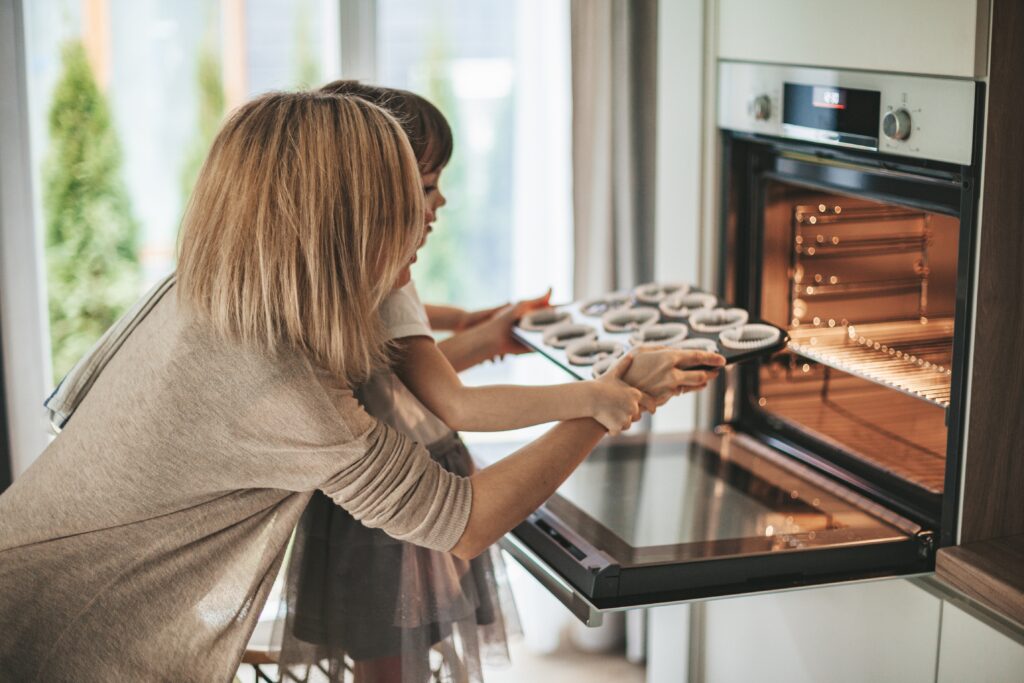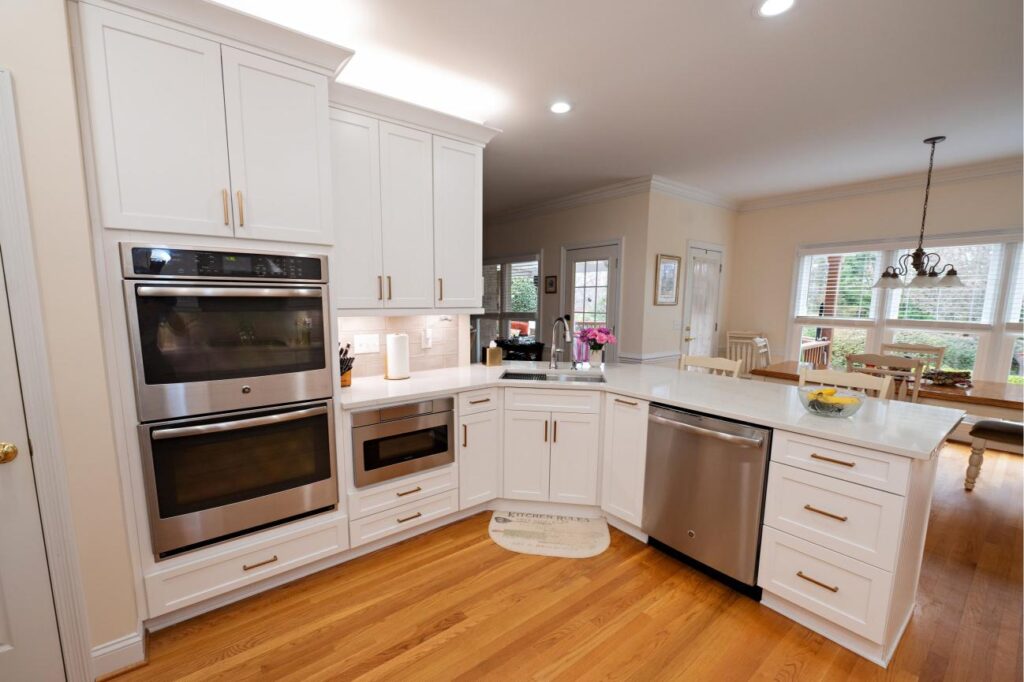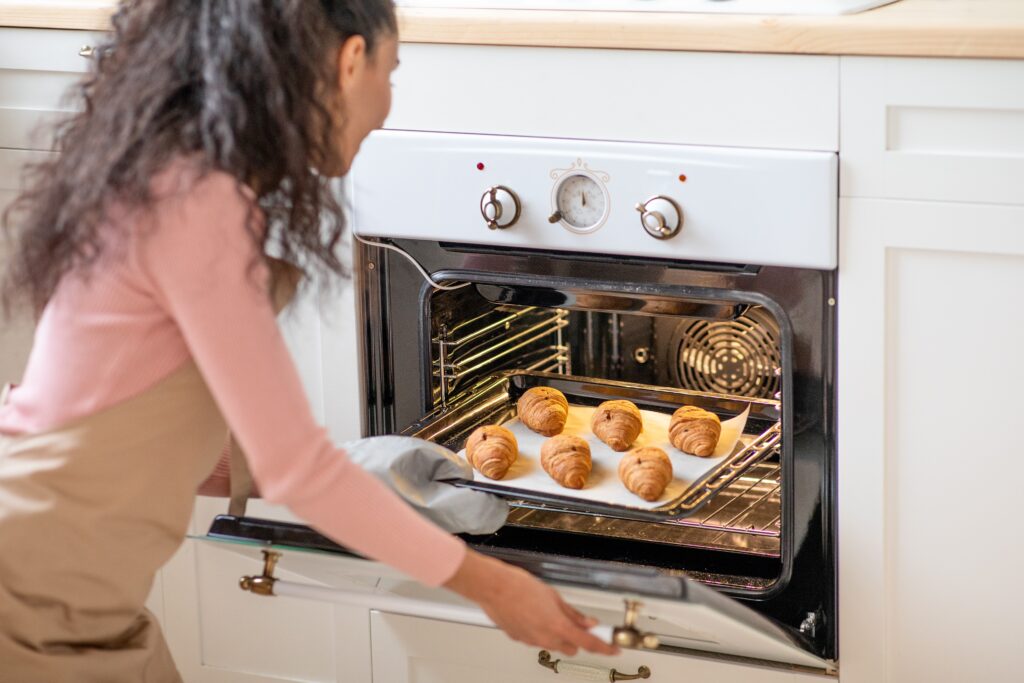When it comes to kitchen appliances, the oven is a central feature that plays a vital role in daily cooking and baking activities. Knowing the lifespan of your oven, understanding when it’s time for a replacement, and recognizing the signs of wear are crucial for maintaining an efficient and enjoyable kitchen experience. This guide delves into the essentials of oven longevity, offering insights to help homeowners make informed decisions about their kitchen appliances.
Oven Longevity
The average lifespan of an oven is usually between 10 to 15 years, but this can vary based on several factors. Well-known brands known for their quality tend to produce ovens that can last towards the higher end of this range, particularly with consistent maintenance and care. The longevity of your oven not only hinges on its make and model but also on how you use and look after it.
Whether your oven is gas or electric can influence its durability. Gas ovens are often praised for their longevity and consistent cooking temperatures, while electric ovens are celebrated for their even baking and modern features. How often you use your oven also impacts its lifespan. Frequent use can lead to quicker wear and tear, while occasional use might extend its life.

Proper maintenance is crucial for keeping your oven in top shape. This includes regular cleaning to prevent the build-up of grease and food residues, which can cause the oven to work harder and potentially shorten its life. Following the manufacturer’s guidelines for care and maintenance can help ensure that your oven operates efficiently for as long as possible.
In essence, the lifespan of an oven is not just a matter of time but a result of how it is used and cared for. Investing in a high-quality oven and committing to regular maintenance can significantly enhance its longevity, making it a reliable tool in your kitchen for many years. Keeping your oven clean and following the recommended care practices will ensure that it remains a dependable part of your culinary adventures.
How Often Should You Replace Your Oven?
Replacing an oven should be considered when it begins to show consistent signs of malfunctioning, or if repairs become too frequent and costly. If your oven is over 15 years old, it might be more economical to invest in a new model rather than spend on fixing an aging appliance. Modern ovens come with advanced features and improved energy efficiency, providing better cooking experiences and lower energy bills.
Is It Worth Fixing a 12 Year Old Oven?
Determining whether to repair a 12-year-old oven involves careful consideration of various aspects. The decision primarily hinges on the repair expenses, the oven’s current state, and how well it functions. If the oven generally performs well and the cost to fix it is manageable, then repairing it could be a good choice. However, if the oven often malfunctions or if the estimated repair cost is substantial, it might be time to think about getting a newer, more efficient model

The age of the oven plays a crucial role in this decision. A 12-year-old oven might be nearing the end of its expected lifespan. Therefore, investing in repairs, especially if they are costly, may not be the most economical choice in the long run. Modern ovens offer improved energy efficiency, which can lead to savings on utility bills and a reduced environmental impact
Deciding whether to repair or replace a 12-year-old oven requires assessing its condition, repair history, and efficiency. If repairs are affordable and the oven is still reliable, fixing it may be justified. However, if the appliance is unreliable and repair costs are high, upgrading to a new oven could be the more sensible and economical choice
How Do I Know If My Oven is Going Out?
Recognizing when your oven is on the brink of failure is key to avoiding undercooked meals and potential safety hazards. There are several telltale signs that your oven may be going out, which, when noticed, should prompt a closer inspection or consideration for replacement. One common indicator is uneven baking; if you find that your cakes or cookies are partially overcooked or undercooked, it could suggest that the oven’s heating elements are not distributing heat evenly.
Temperature inconsistency is another red flag. An oven that cannot maintain a set temperature or shows wide temperature swings can lead to improperly cooked food. This issue might be due to a malfunctioning thermostat or failing heating elements, both of which are crucial for proper oven operation. Additionally, if your oven takes longer than usual to preheat or cook meals, it’s a sign that it’s not operating efficiently

Strange noises, like buzzing, ticking, or whirring, can indicate mechanical problems within the oven, such as a faulty fan or motor. Similarly, unusual smells, particularly of burning or gas (in the case of gas ovens), should never be ignored as they could signal dangerous conditions or impending failure.
Regular maintenance, such as cleaning and servicing, can sometimes resolve these issues and extend the life of your oven. However, if these problems persist or worsen, it’s a strong indication that the oven may be nearing the end of its useful life. Continuing to use an oven that exhibits these symptoms can be unsafe and may result in further damage or more costly repairs. Therefore, it’s important to monitor your oven’s performance and seek professional advice to determine whether repair or replacement is the best course of action.
Conclusion
Ovens are essential appliances in any kitchen, and their performance and reliability are key to a successful cooking experience. Understanding the typical lifespan of an oven, recognizing when it’s time for a replacement, and being able to identify the signs of a failing oven can help ensure your kitchen remains functional and efficient. Investing in a new oven when necessary can enhance your cooking capabilities and improve energy efficiency, making it a wise decision for both your culinary enjoyment and household budget. Regular maintenance and timely upgrades are the cornerstones of managing your kitchen appliances effectively, ensuring that your oven remains a reliable and valued part of your home’s culinary setup.
